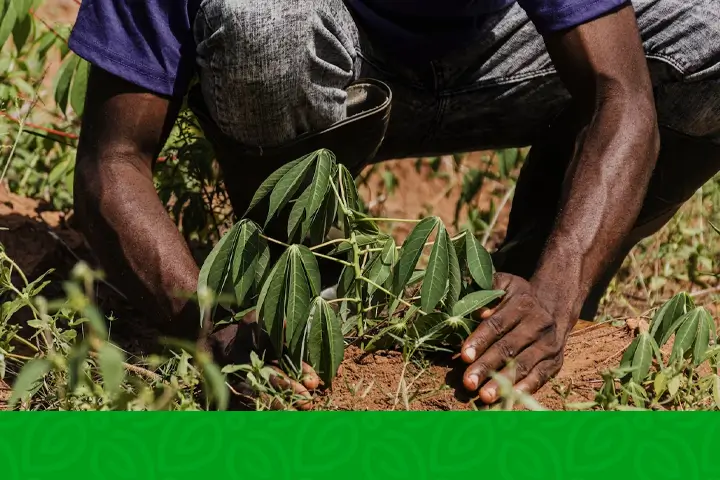
In the dynamic and diverse agricultural landscapes of Africa, the collaboration between experienced agronomists and seasoned farmers holds the key to sustainable and profitable farming practices. This article aims to provide an in-depth guide, drawing on the expertise of an agronomist and a seasoned farmer who have navigated the challenges and opportunities unique to African agriculture. Whether you’re a novice or a veteran farmer, this guide will equip you with valuable insights to optimize your yields and contribute to the continent’s food security.
1. Understanding African Agroecological Zones: Africa’s agricultural potential is intricately tied to its diverse agroecological zones, which encompass a range of climatic and soil conditions. From the arid deserts of the Sahel to the lush savannas of East Africa, each region presents its own challenges and opportunities. Properly understanding these zones is fundamental to selecting the right crops and farming methods. By mapping out agroecological zones and aligning crop selection with local conditions, farmers can significantly improve success rates and enhance overall productivity.
2. Crop Planning and Rotations: Maintaining soil health and fertility is essential for long-term agricultural sustainability. Crop rotation, a practice that involves planting different crops in sequence, is a proven method to achieve this. It not only minimizes the risk of soil depletion but also helps manage pests and diseases naturally. By strategically sequencing crops, farmers can create resilient farming systems that optimize yields while preserving the ecosystem. The section will feature case studies highlighting successful crop rotation models tailored to different regions of Africa.
3. Sustainable Soil Management: The foundation of successful farming lies beneath the ground – in the soil. Soil testing and analysis are critical steps in assessing nutrient deficiencies and pH levels. Enriching soil with organic matter and utilizing cover cropping techniques can enhance soil structure and water retention. Furthermore, combating soil erosion and degradation requires innovative practices such as agroforestry and terracing. By adopting these farmer-tested practices, African farmers can nurture their land for future generations.
4. Water Management Strategies: Water scarcity is a significant challenge faced by African farmers. Effective water management is crucial to ensure optimal crop growth and yield. Different regions demand tailored approaches, from efficient irrigation methods in water-scarce environments to rainwater harvesting and storage solutions. Implementing strategies to minimize water wastage and optimizing irrigation schedules can lead to substantial water savings and increased productivity.
5. Integrated Pest and Disease Management: Pests and diseases can devastate crops if not managed effectively. African farmers must be equipped with integrated pest management (IPM) techniques that focus on sustainable control methods, reducing the reliance on chemical pesticides. By identifying common pests and diseases and implementing natural pest control measures, such as introducing beneficial insects and using resistant crop varieties, farmers can ensure healthier crops and greater yields.
6. Climate-Resilient Farming: The impacts of climate change are increasingly evident in African agriculture. Erratic weather patterns, extended droughts, and unpredictable rainfall pose significant challenges. To combat these issues, farmers can adopt climate-smart farming techniques that include cultivating drought-resistant crops, practicing agroecology, and using agroforestry to enhance soil fertility and combat erosion. Leveraging early warning systems and weather forecasting tools allows farmers to make informed decisions and mitigate potential losses.
7. Market Awareness and Value Addition: Connecting with markets is crucial for turning agricultural endeavors into profitable enterprises. Understanding local and regional market demands helps farmers tailor their crop choices and production quantities. Additionally, value addition through post-harvest processing, packaging, and branding can open doors to higher-value markets. This section will provide insights into market trends, diversification strategies, and ways to maximize profitability through value chain integration.
8. Farmer Empowerment and Knowledge Sharing: Agricultural success isn’t confined to individual efforts; it thrives on collaboration and knowledge-sharing. Strengthening farmer cooperatives, establishing mentorship programs, and participating in capacity-building initiatives can empower farmers to collectively overcome challenges. Successful case studies showcasing collaborations between agronomists, researchers, and farmers will inspire readers to actively engage in knowledge exchange networks and contribute to the growth of African agriculture.
As we journey through this guide, it becomes evident that the synergy between agronomists and experienced farmers forms the cornerstone of thriving agriculture in Africa. By leveraging the power of knowledge, adaptation, and innovation, African farmers can overcome challenges and seize opportunities to build a resilient and sustainable agricultural future. This guide encourages you to not only apply the insights shared but also contribute to the collective wisdom that sustains our continent’s vital food systems. Together, we can ensure a prosperous future for African agriculture, feeding communities and driving economic growth.


















